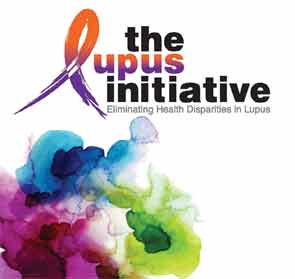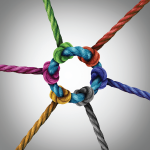
Many of us are fortunate to practice in settings with diverse patient populations. Ethnicity and gender may be the most obvious components when thinking about diversity, but factors such as socioeconomic status, education, culture, religion, and geography also play a role in defining who we are. Varied life experiences, which can influence the way one views the world and other people, also contribute to diversity. Most of us would agree that diversity is a good thing, but such differences are often subtle and complex, and may be easily overlooked or misunderstood.

When our patients do not look like us, sound like us, speak the same language, or share a similar life experience, does it affect the way we care for them? While we might like to think it does not, a growing body of evidence suggests that it can. We all make unconscious, split-second decisions about the people we encounter throughout the day. As healthcare professionals, we are not immune to the effects of bias. Indeed, we may be more susceptible because we often operate under tight time constraints, with limited information, and under a high degree of stress and fatigue.
In a typical clinical setting, many patients require our attention, each with their own unique personal and medical story. Combine a diverse patient population with a wide variety of needs with a busy physician who is constrained by time and a wide variety of inadequate resources, and you have a challenging situation. This can be magnified for us as rheumatologists, dealing with patients with complex medical conditions—like lupus—with protean, unpredictable, and sometimes life-threatening manifestations. Symptoms can fluctuate, even within the same patient, and are sometimes reported in general and vague terms. But for the very same reasons, we are also uniquely qualified to deal with the challenges of bias. We are diagnostic experts—medical sleuths—and we are particularly skilled at solving hard-to-grasp puzzles. As we increase our awareness of the effects of bias and our understanding of the nature and breadth of bias, we can harness our diagnostic expertise to improve patient care and bring greater awareness to the impact of bias in healthcare.
Even Unconscious Bias Is Dangerous
Raising awareness about conscious and unconscious bias is of critical importance as more studies show that it can lead to tangible differences in patient care and outcomes. In a video interview that is part of a new CME series discussed below, one colleague shared that he had unconsciously, and incorrectly, assumed that the lupus patients he treated through a large public hospital had a lower level of education, on average, than his private patients even though his own data on the sociodemographic makeup of his patients showed otherwise. The false assumption was brought to his attention by an audience member during a presentation he made, and he later wondered if this unconscious bias had limited his level of discourse with these patients and if there was an effect on the care they received. Another recounted how he had, for twenty years, used a picture of a Caucasian woman to illustrate a typical lupus rash to his second-year medical students but described the more typical patient as an African-American woman. When approached by one of his students questioning this discrepancy, he realized that the presentation would benefit from more representative images. He now uses a variety of photographs to illustrate how lupus rash presents on a variety of skin tones.
My colleagues demonstrated an openness, not only to share these examples with us, but also to question their preconceived ideas. They serve as role models for us in their willingness to become self-aware and to take a corrective course when unconscious bias is brought to their attention. It begins with awareness.
We Can Work to Stop Bias in Our Practices
The ACR has taken a leadership role in bringing attention to this issue. Thanks to the vision and commitment of past president and ACR master David Wofsy, public health researcher and Atlanta rheumatologist Sam Lim, and ACR staff members Lisa Amaker, Sheryl McCalla, and Robin Campbell, we’re off to an impressive start. With a grant from the United States Department of Health and Human Services’ Office of Minority Health, and a charter to reduce health disparities in lupus care, the ACR’s Lupus Initiative is developing critically important educational tools and resources.
This month, The Lupus Initiative is launching a curriculum and a suite of resources designed to bring attention to health care disparities, including the effects that conscious and unconscious bias can have on patient care. The Lupus Initiative partnered with Georgetown University’s National Center for Cultural Competence to create an online CME series titled, Conscious and Unconscious Biases in Healthcare: Focus on Lupus. The series provides a wealth of thought-provoking essays and tools that you can use to assess your level of unconscious bias. It also provides a set of simple steps that providers can take to bring awareness to bias and mitigate its effects. The new CME series will assist you in getting started and creating an action plan for tackling this very important issue. You can access this online CME at www.thelupusinitiative.org. Some initial steps that you can take include:
- Acknowledge and accept the existence of bias, its manifestations, and its effects.
- Know that biases can be interrupted.
- Assume individual responsibility to address bias without assignment of guilt or blame.
- Engage in self-reflection and self-assessment.
Most of us are aware that health disparities exist. It is a complex issue, with many factors accounting for disparities in outcomes. As healthcare professionals, it is our responsibility to strive for unbiased care, minimizing and hopefully eliminating bias as a factor that may lead to health disparities. When we equip ourselves and our staffs to be alert to the potential for bias and its effects, we can provide better care and help our patients achieve better outcomes. We may discover that a patient who did not follow through on a course of treatment was not willfully noncompliant, but failed to understand instructions because of a language barrier; perhaps they needed a translator. Or perhaps they speak the same language you do but needed the information communicated differently, by a person with whom they feel comfortable.
When we are able to understand the patient’s unique perspective, without bias, we can provide better care. We have unique skills, abilities, and knowledge that allow us to make a positive difference in potentially life-threatening disease processes. We must arm ourselves to combine our knowledge with the ultimate in compassionate care—improving outcomes through self-awareness and an improved appreciation of and for the racial and cultural differences that we all bring to the doctor–patient relationship.
The ACR, through The Lupus Initiative, is providing the resources that allow us to provide truly compassionate care to all of our patients. For more information, visit www.thelupusinitiative.org.
Dr. Uknis is professor of medicine and senior associate dean for admissions and strategy at Temple University in Philadelphia. Contact her at [email protected].


